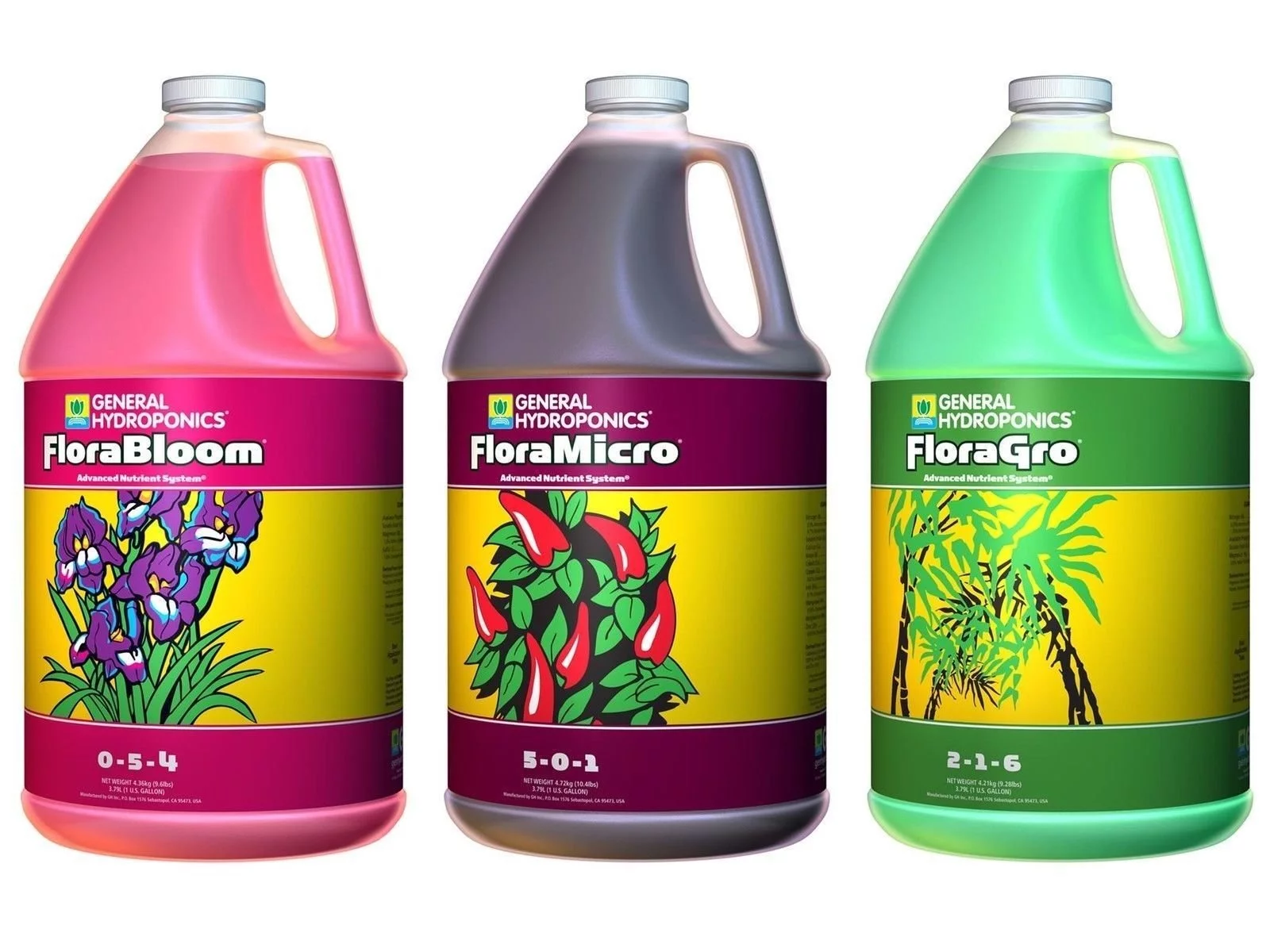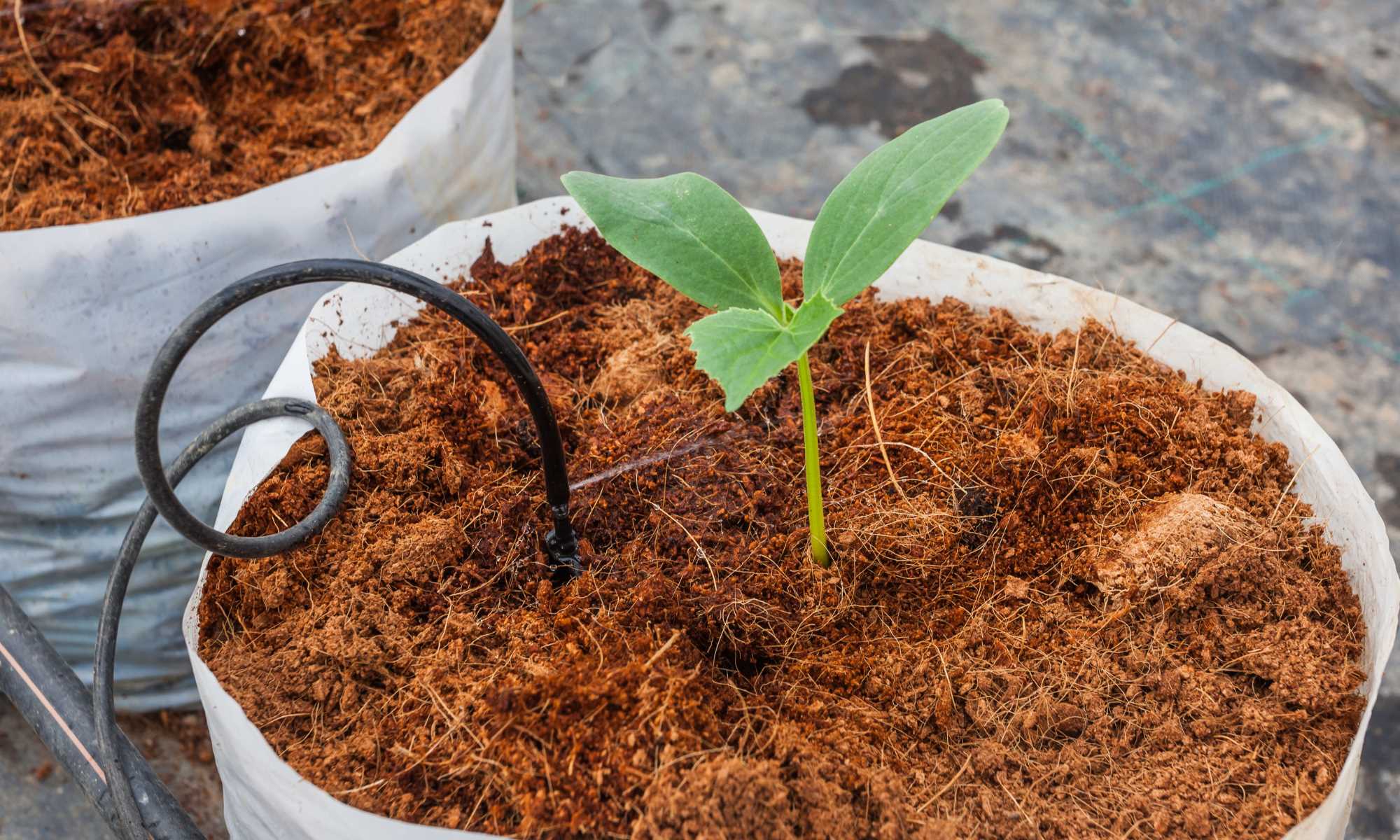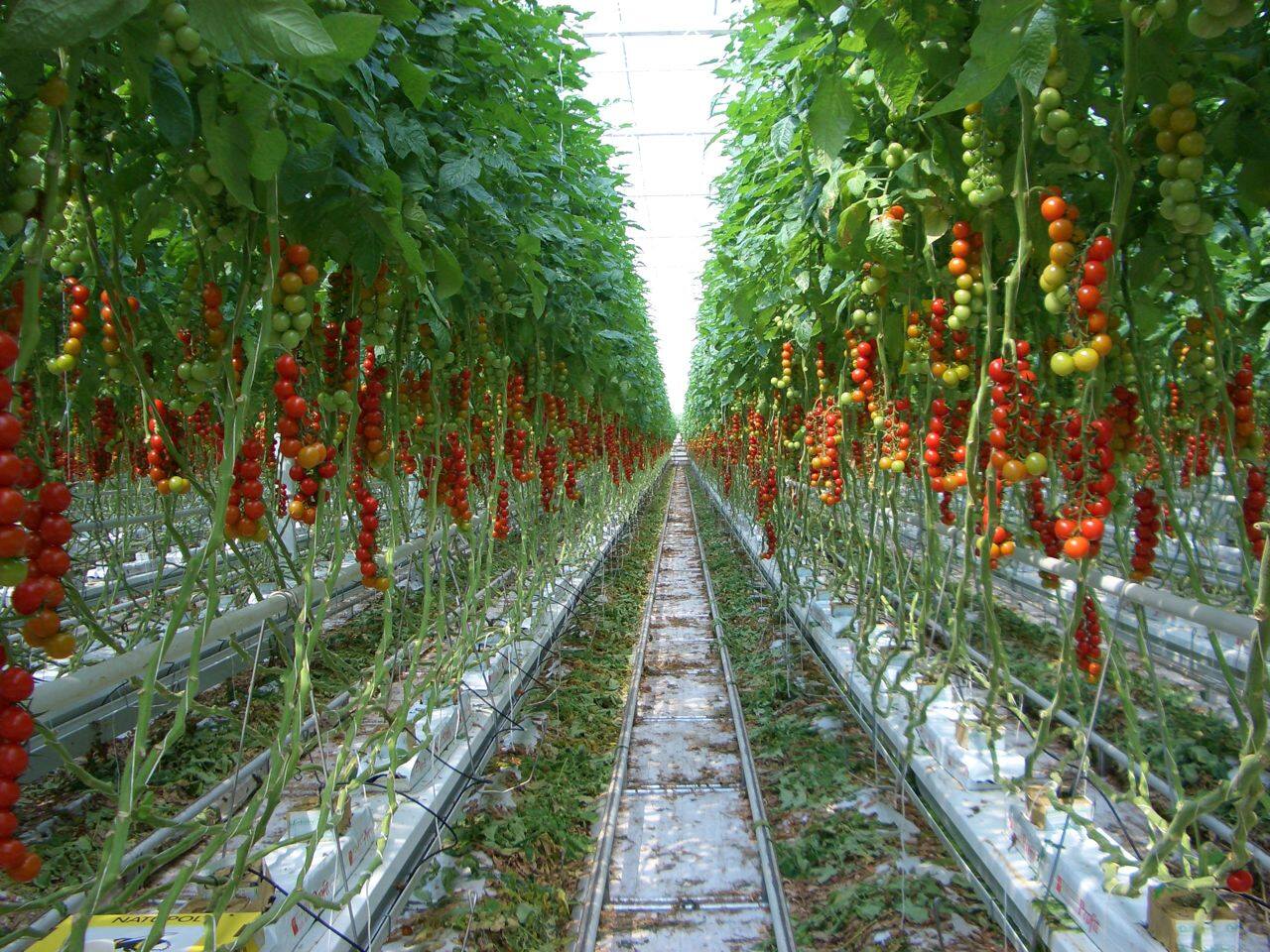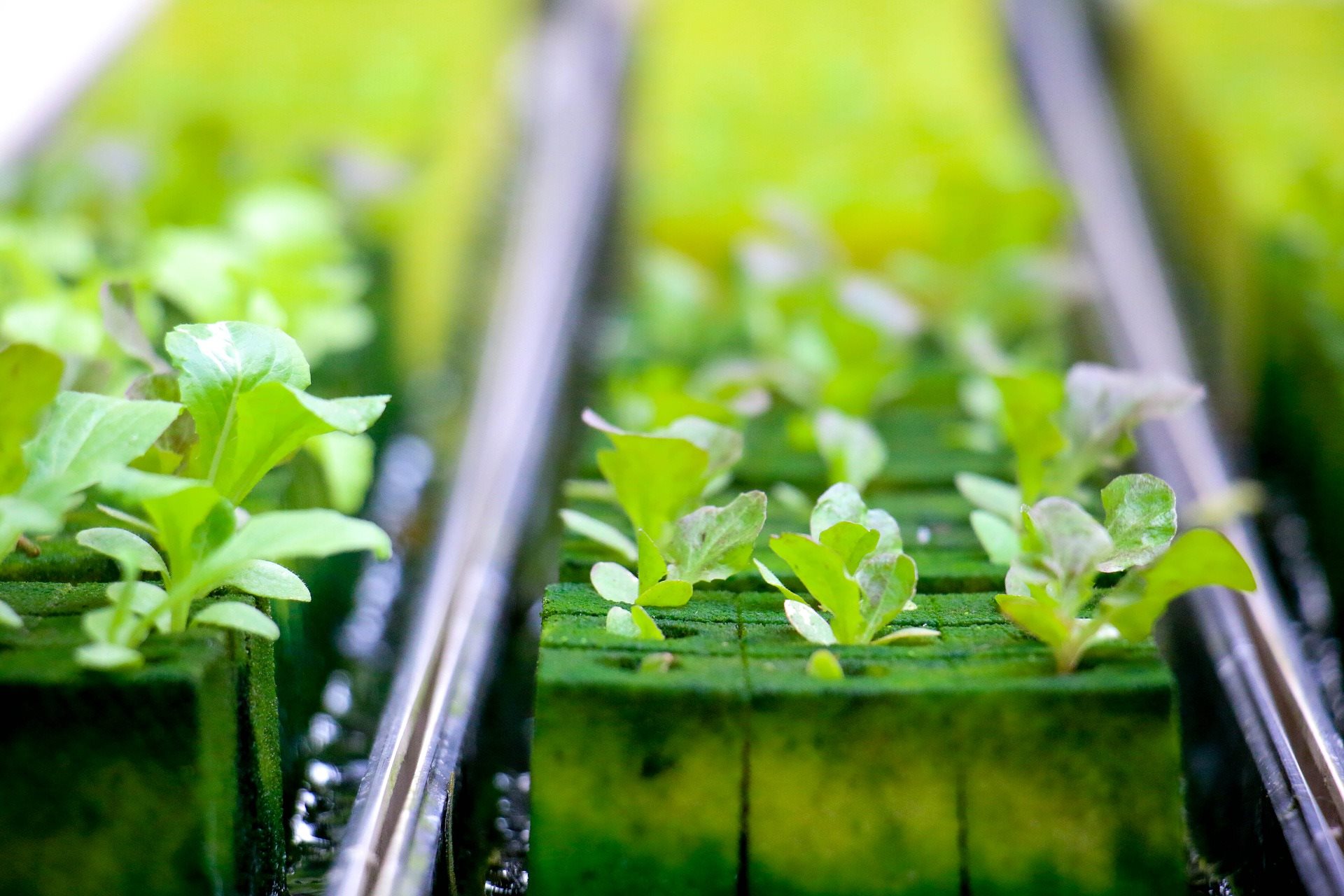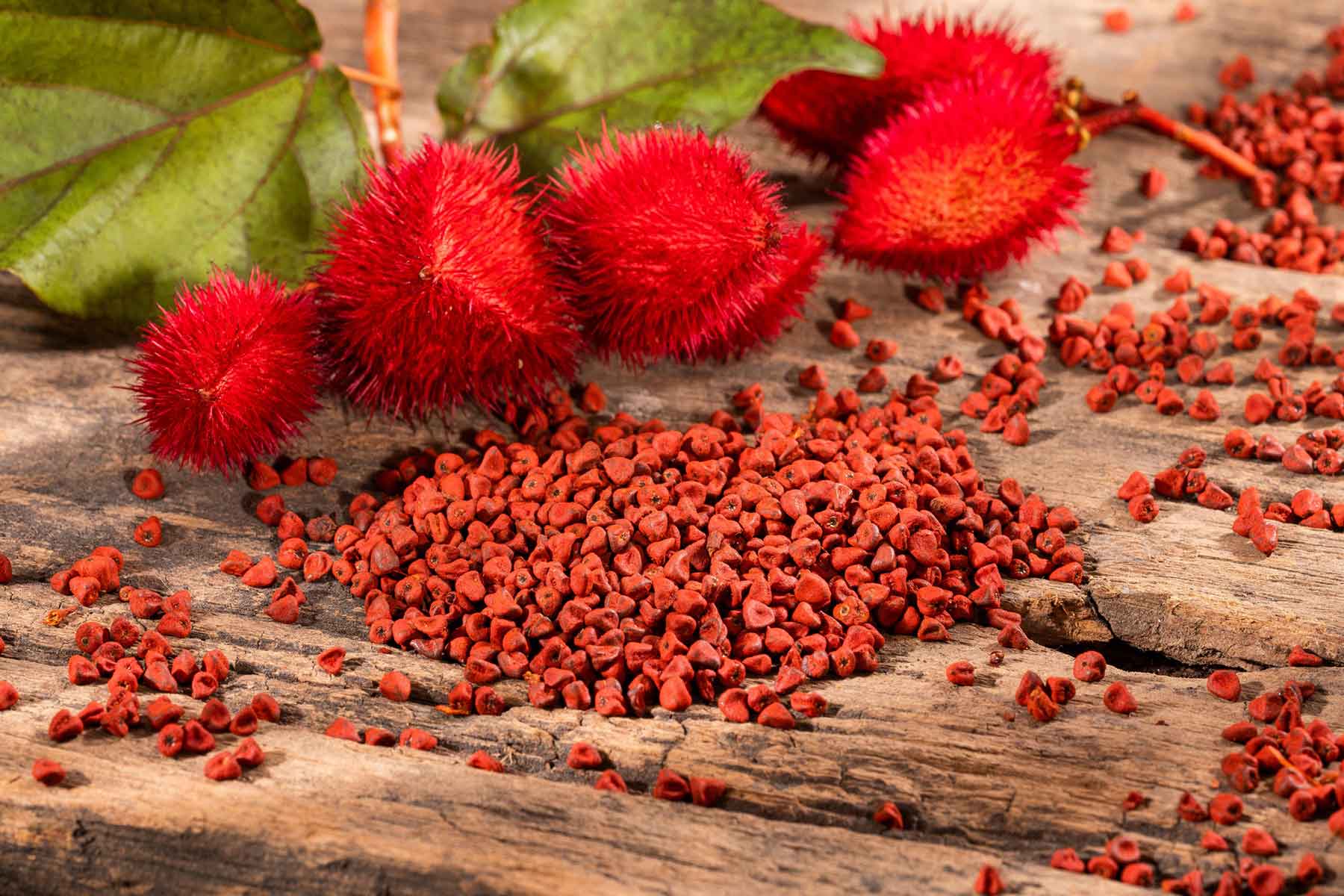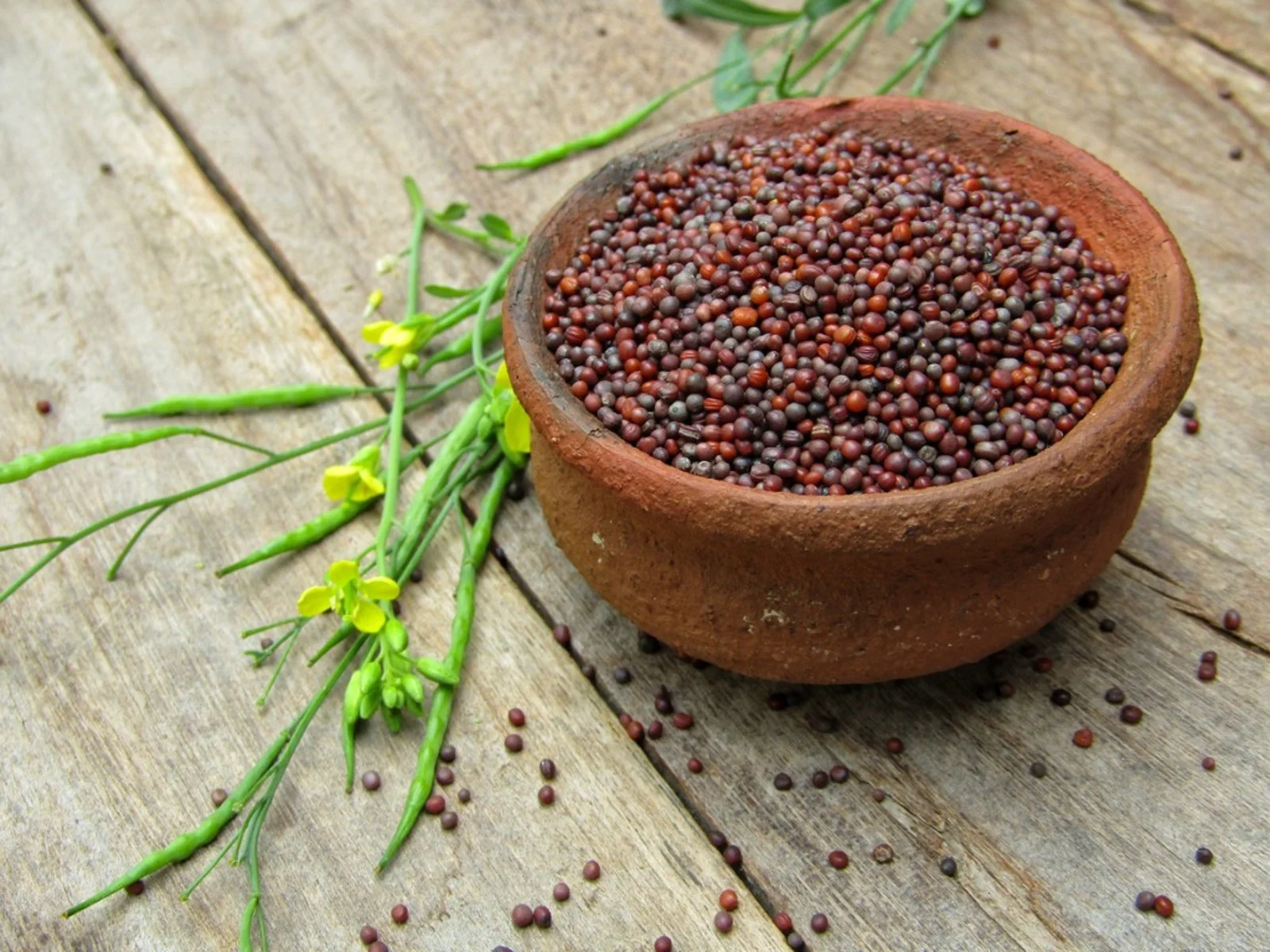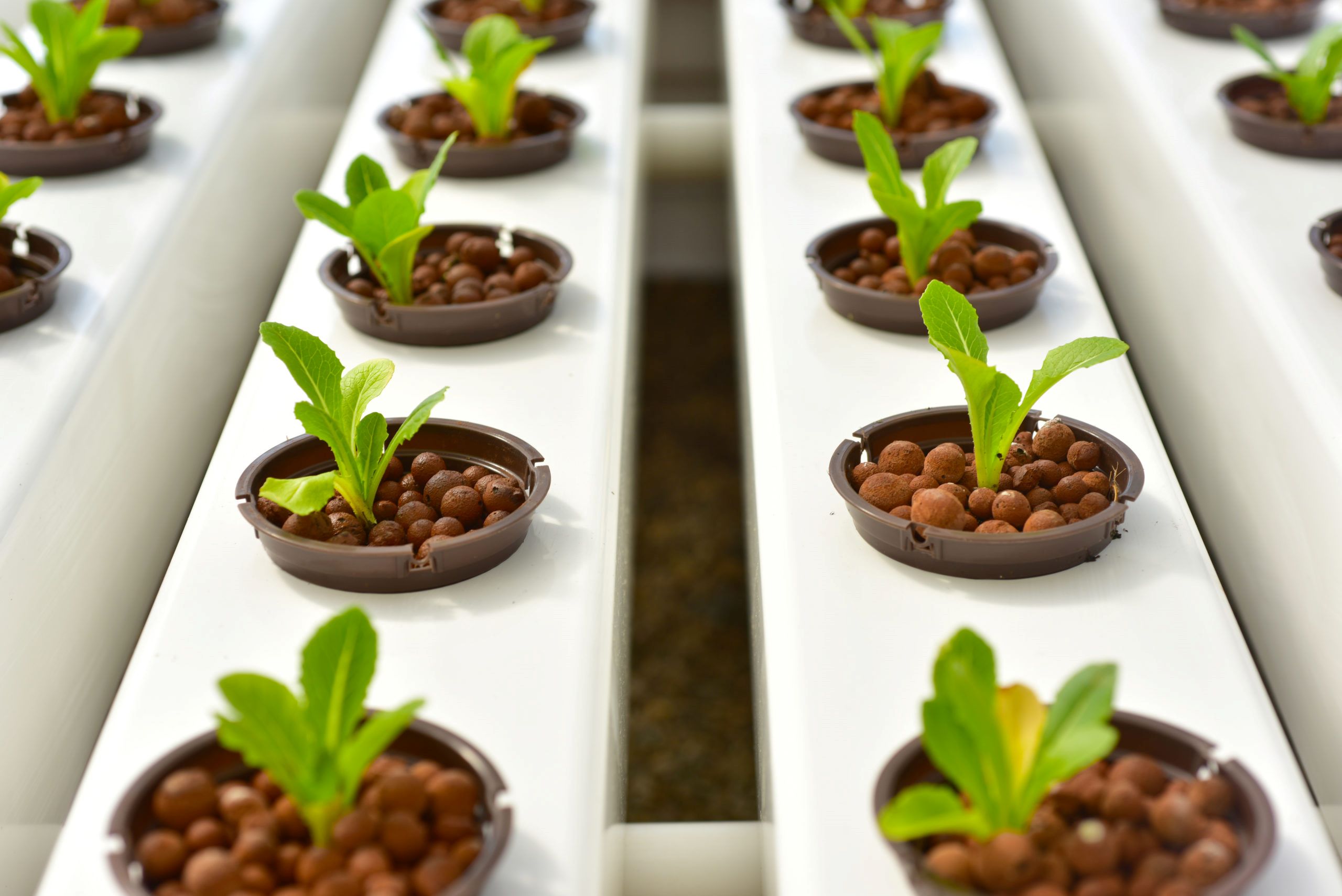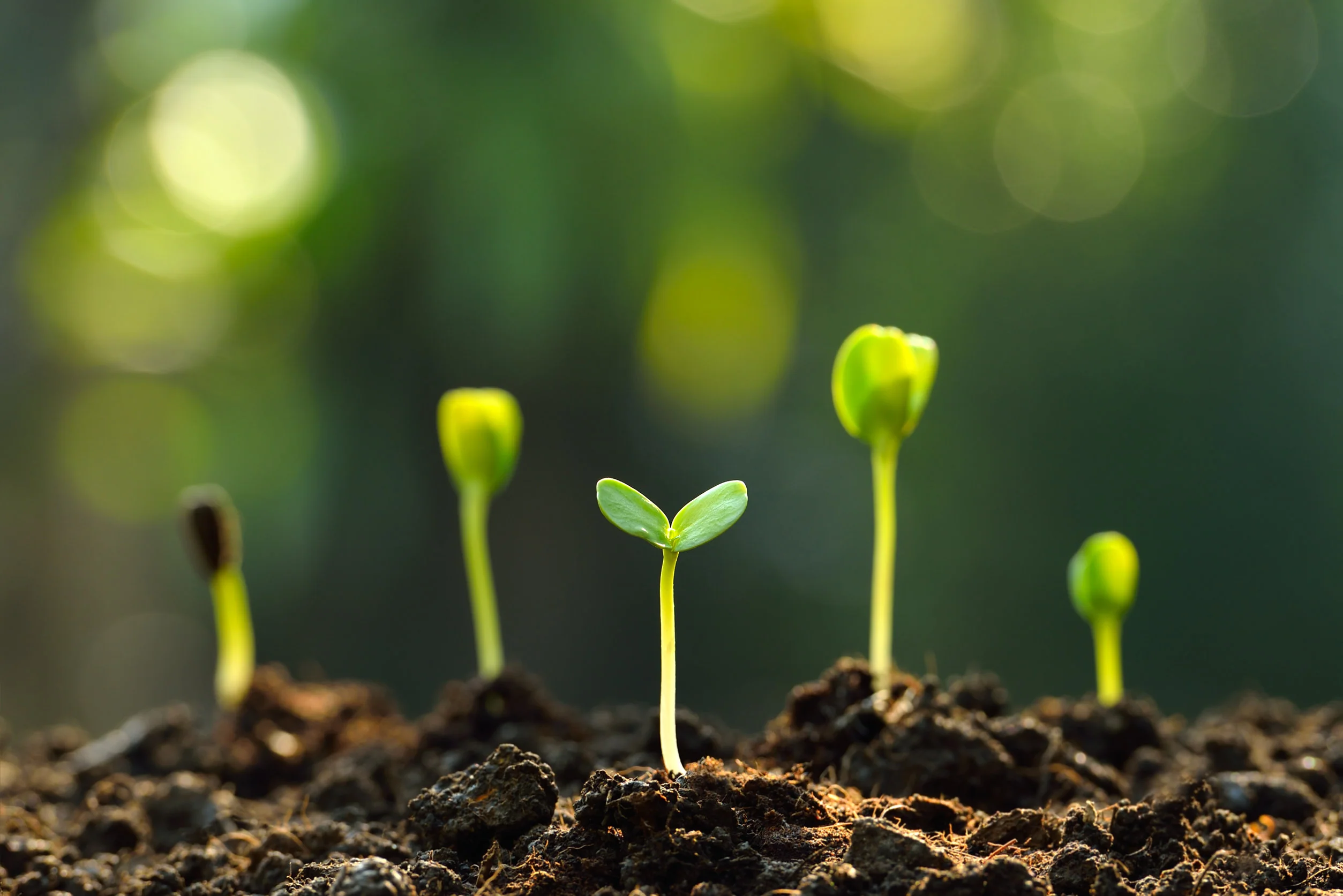Home>Types of Gardening>Edible Gardening>What Seeds To Use For Hydroponics
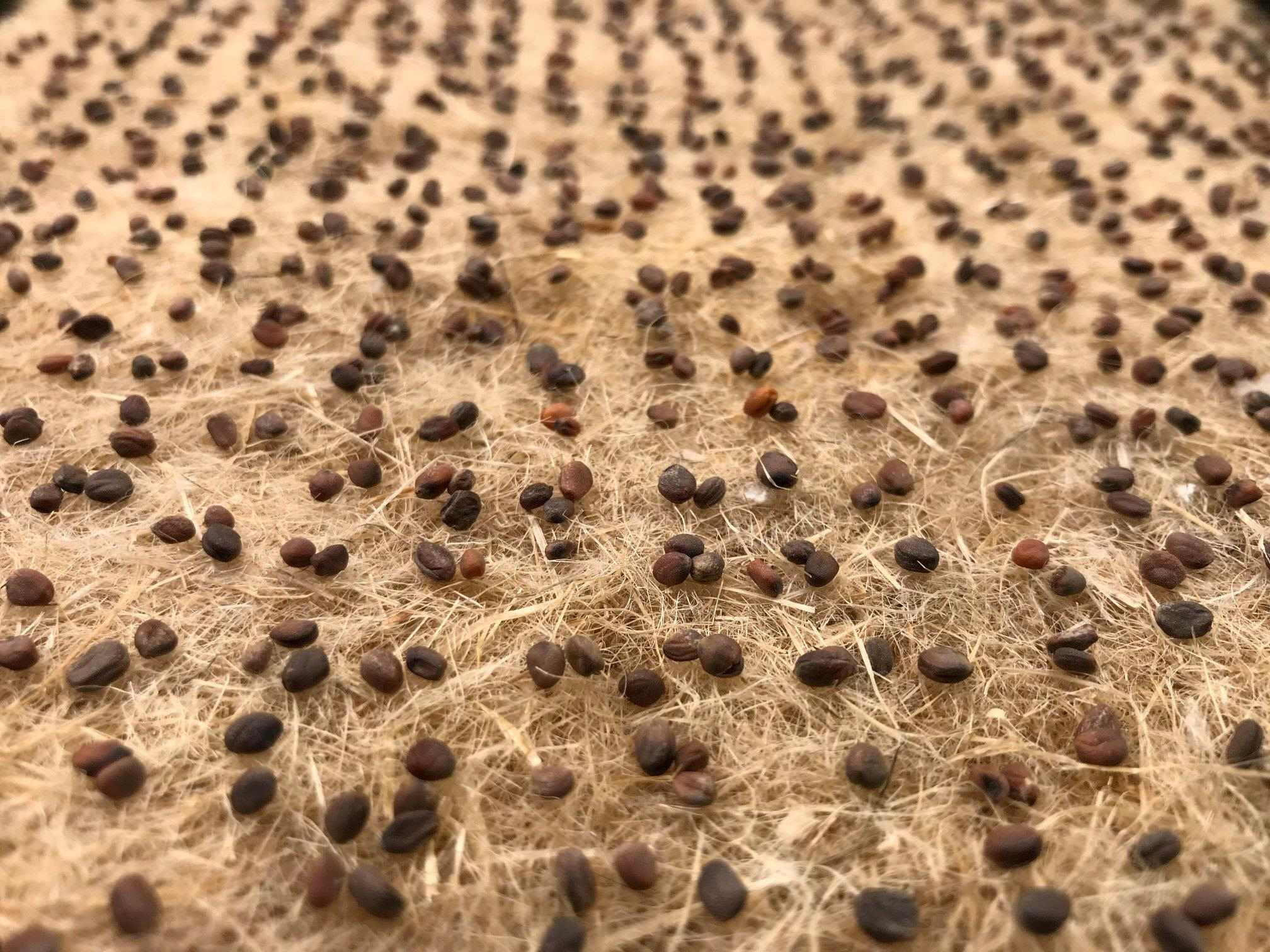

Edible Gardening
What Seeds To Use For Hydroponics
Modified: January 22, 2024
Discover the best seeds for hydroponics in your edible gardening journey. Boost your yields with our expert recommended seed varieties for hydroponic systems.
(Many of the links in this article redirect to a specific reviewed product. Your purchase of these products through affiliate links helps to generate commission for Chicagolandgardening.com, at no extra cost. Learn more)
Table of Contents
Introduction
Hydroponics, a method of growing plants without soil, has gained popularity in recent years as a sustainable and efficient way to cultivate a variety of crops. By providing essential nutrients directly to the plant’s roots in a water-based solution, hydroponics allows gardeners to maximize space, conserve resources, and produce higher yields compared to traditional soil-based gardening. One of the key components of a successful hydroponic system is the use of high-quality seeds.
In this article, we will explore the importance of using the right seeds for hydroponics and provide insights into the different types of seeds suitable for your hydroponic garden.
When it comes to hydroponics, choosing the right seeds is crucial as it directly impacts the plant’s growth, productivity, and overall success of your hydroponic system. While traditional gardening often involves starting plants from seeds or transplants, hydroponics typically relies on seeds as the primary source of plant propagation.
By carefully selecting seeds designed specifically for hydroponics, you can optimize your gardening efforts and achieve superior results. Whether you are growing vegetables, herbs, fruits, or flowers, using the right seeds ensures that your hydroponic system yields healthy and abundant harvests.
Rather than relying on the natural fertility of the soil, hydroponics relies on a nutrient-rich solution to provide plants with essential elements for their growth. Because of this, selecting seeds that are well-suited for hydroponics is crucial. These seeds are often bred and selected for their adaptability to hydroponic environments, ensuring they thrive even without the support of soil.
Moreover, when choosing seeds for hydroponics, you can take advantage of varieties that are known for their rapid growth, disease resistance, and high yield potential. This allows you to maximize both your time and resources, ultimately leading to a more productive and rewarding hydroponic garden.
Benefits of Using Seeds for Hydroponics
Using seeds for hydroponics offers several significant advantages that contribute to the success and efficiency of your hydroponic garden. Here are some key benefits:
- Greater Variety: Growing from seeds expands your options, allowing you to choose from a wide range of plant varieties suitable for hydroponic cultivation. Whether you prefer traditional vegetables, exotic herbs, or unique flowers, seeds give you the freedom to experiment and diversify your hydroponic garden.
- Cost-Effective: Starting your hydroponic garden from seeds is often more cost-effective compared to purchasing pre-grown transplants. Additionally, seeds can be stored for future use, allowing you to save money in the long run and have a continuous supply of fresh plants.
- Optimal Growth Conditions: Seeds are specifically bred for hydroponic environments, ensuring that they are well-adapted to the controlled conditions of your hydroponic system. This means they have a higher chance of germinating successfully and thriving without the presence of soil.
- Healthier Plants: By starting with seeds, you have more control over the health and quality of your plants from the very beginning. Seeds are less likely to carry pests or diseases compared to transplants, giving you a head start in maintaining a healthy hydroponic garden.
- Ongoing Harvests: With seeds, you can establish a continuous cycle of planting and harvesting. By stagger-starting different batches of seeds, you can ensure a constant supply of fresh produce throughout the growing season, enhancing the sustainability and productivity of your hydroponic garden.
- Customization: When using seeds, you have the flexibility to tailor your hydroponic garden to your preferences. You can select seeds that align with your desired taste, color, size, or texture, ensuring that the resulting harvest perfectly suits your culinary or decorative needs.
Overall, using seeds for hydroponics presents numerous benefits, from a wider variety of plant options and cost savings to healthier plants and ongoing harvests. By embracing the power of seeds, you can create a vibrant and thriving hydroponic garden that meets your specific needs and preferences.
Factors to Consider when Choosing Seeds for Hydroponics
When selecting seeds for your hydroponic garden, it’s important to consider several factors to ensure optimal growth and success. Here are some key factors to consider:
- Variety and Suitability: Choose seeds that are specifically labeled or recommended for hydroponic cultivation. These seeds are often selected for their adaptability to soilless environments, ensuring they thrive in your hydroponic system.
- Growth Characteristics: Pay attention to the growth habits and characteristics of the seeds you choose. Consider factors such as compactness, height, spreading tendencies, and overall size to determine whether the plants will be suitable for your available space and intended use.
- Growth Cycle: The length of the growth cycle is an important consideration, especially if you want a continuous harvest. Choose seeds with staggered germination and maturity times to ensure a steady supply of fresh produce throughout the growing season.
- Disease Resistance: Look for seeds that have been bred for disease resistance. This helps minimize the risk of plant diseases and reduces the need for chemical interventions, promoting a healthier and more sustainable hydroponic garden.
- Yield Potential: Consider the expected yield of the plants grown from the chosen seeds. Some varieties are known for their high yield potential, allowing you to maximize productivity in your hydroponic garden. Balance this with your available space and desired quantity of harvest.
- Availability and Source: Choose seeds from reputable sources such as seed companies or trusted online retailers. Ensure that the seeds are fresh, viable, and have been properly stored to increase the chances of successful germination and healthy plant growth.
- Preferred Characteristics: Determine the specific characteristics you desire in your plants, such as taste, color, size, or texture. Different varieties of seeds offer unique attributes, so select seeds that align with your preferences to create a customized and enjoyable hydroponic garden.
- Experimentation: Don’t be afraid to experiment with different seed varieties in your hydroponic garden. Trying out new and unique plants can offer exciting opportunities to discover unfamiliar flavors, textures, or colors, making your gardening experience more enjoyable and adventurous.
By taking into account these crucial factors, you can make informed decisions when choosing seeds for your hydroponic garden. This will help ensure higher success rates, healthier plants, and ultimately, a bountiful and rewarding harvest.
Popular Seeds for Hydroponics
When it comes to hydroponic gardening, there are several popular seed varieties that have proven to be successful in soilless environments. These seeds are known for their adaptability, productivity, and ability to thrive in hydroponic systems. Here are some popular seeds commonly used in hydroponics:
Vegetable Seeds for Hydroponics:
Vegetables are a staple in hydroponic gardens. Some popular vegetable seeds suitable for hydroponics include tomatoes, lettuce, cucumbers, peppers, and herbs like basil and parsley. These seeds are selected for their fast growth, compact size, disease resistance, and high yield potential, making them perfect for hydroponic cultivation.
Herb Seeds for Hydroponics:
Herbs are also well-suited for hydroponic gardening due to their small size and high demand in culinary applications. Popular herb seeds commonly grown in hydroponic systems include mint, cilantro, chives, sage, and thyme. These seeds germinate quickly and produce abundant foliage, providing you with fresh herbs all year round.
Fruit Seeds for Hydroponics:
Although most hydroponic gardens focus on leafy greens and herbs, some fruit seeds can also be successfully grown in hydroponic systems. Strawberries, watermelons, and various types of berries are popular fruit seeds for hydroponics. These seeds require specific conditions such as proper pollination techniques, but they can yield delicious and homegrown fruits without the need for large garden spaces.
Flower Seeds for Hydroponics:
Flowers not only enhance the visual appeal of your hydroponic garden but can also serve as companion plants to encourage pollination. Marigolds, petunias, zinnias, and pansies are popular flower seeds chosen by hydroponic gardeners. These seeds add vibrant colors and attract beneficial insects, contributing to overall garden health and productivity.
While these are some of the popular seeds for hydroponics, it’s important to note that the variety of seeds suitable for hydroponic cultivation is vast. Different plants have unique requirements and growth patterns, so experimenting with various seeds can help you discover new and exciting possibilities in your hydroponic garden.
Before purchasing seeds, research specific cultivars that are recommended for hydroponics and consider the specific needs and conditions of your hydroponic system. This will help ensure the success of your plants and the overall productivity of your hydroponic garden.
Vegetable Seeds for Hydroponics
When it comes to hydroponic gardening, growing vegetables is a popular choice due to their high nutritional value and versatility in cooking. Here are some vegetable seeds that are well-suited for hydroponics:
Tomatoes
Tomatoes are one of the most popular vegetables to grow in hydroponic systems. They come in various sizes and colors, including cherry tomatoes, beefsteak tomatoes, and heirloom varieties. With proper support and pruning, tomato plants can thrive in hydroponics and produce an abundant harvest of juicy, flavorful fruits.
Lettuce
Lettuce is a leafy green vegetable that is easy to grow in hydroponics and perfect for salads and sandwiches. Varieties like butterhead, romaine, and loose-leaf lettuce are well-suited for hydroponic systems due to their compact size and quick growth. They can be harvested in a cut-and-come-again fashion, allowing you to enjoy a continuous supply of fresh, crisp lettuce.
Cucumbers
Cucumbers are a popular vegetable in hydroponic gardens due to their refreshing taste and high water content. With the right support structure, such as trellises or vertical systems, cucumber plants can thrive in hydroponics and produce an abundance of delicious and crunchy cucumbers throughout the growing season.
Peppers
Bell peppers, chili peppers, and other varieties of peppers are excellent choices for hydroponic gardening. Peppers are known for their vibrant colors, delicious flavors, and versatility in various cuisines. They are relatively compact plants that can be grown vertically, making them suitable for hydroponic systems with limited space.
Herbs
Herbs like basil, parsley, cilantro, and dill are often included in hydroponic gardens due to their compact size and high demand in cooking. These herbs grow well in hydroponic systems and allow you to have a constant supply of fresh flavors to enhance your culinary creations.
When choosing vegetable seeds for hydroponics, consider factors such as growth habit, disease resistance, and yield potential. Opt for varieties specifically recommended for hydroponic cultivation, as they are bred to thrive in soilless environments. Additionally, pay attention to the space requirements of each plant and plan accordingly to ensure optimal growth and productivity in your hydroponic garden.
By selecting and nurturing the right vegetable seeds, you can enjoy a continuous harvest of fresh, homegrown produce, and elevate your hydroponic gardening experience to new heights.
Herb Seeds for Hydroponics
Herbs are a delightful addition to any hydroponic garden, providing fresh flavors and aromas that can elevate your culinary creations. Here are some herb seeds that are well-suited for hydroponic cultivation:
Basil
Basil is a popular herb known for its distinct aroma and ability to enhance the flavors of various dishes. With its compact size and rapid growth, basil is a perfect herb for hydroponic gardens. Varieties like Genovese basil, sweet basil, and Thai basil thrive in hydroponic systems and can be harvested frequently to ensure a steady supply of fresh leaves.
Parsley
Parsley is a versatile herb used in a wide range of dishes, from soups and stews to salads and sauces. This biennial herb is easy to grow in hydroponic systems and provides abundant foliage that can be continuously harvested. Both flat-leaf parsley and curly parsley varieties are suitable for hydroponics, allowing you to choose based on your preference.
Cilantro (Coriander)
Cilantro, also known as coriander, is an herb used in many cuisines for its refreshing, citrusy flavor. Cilantro grows relatively quickly, making it an ideal choice for hydroponic gardening. Harvest the leaves to use as a garnish or flavor enhancer while allowing some plants to bolt and produce coriander seeds for additional culinary uses.
Dill
Dill is an herb known for its distinct flavor, often used in pickling, dressings, and fish dishes. This aromatic herb grows well in hydroponic systems and can add a touch of freshness to your meals. Harvest the leaves as needed to enjoy the unique flavor of dill in your culinary creations.
Mint
Mint is a refreshing herb that adds a burst of flavor to beverages, desserts, and savory dishes. With its vigorous growth habit, mint is well-suited for hydroponic cultivation. However, it is recommended to grow mint in a separate container or system, as its spreading nature can easily overtake other plants in the hydroponic garden.
When growing herbs in hydroponics, consider the specific requirements of each herb, such as lighting, temperature, and nutrient needs. Most herbs thrive in well-drained systems with ample lighting, moderate temperatures, and a balanced nutrient solution. Be sure to provide sufficient space for growth and regularly monitor and adjust the nutrient levels to support healthy herb development.
With a selection of herb seeds suited for hydroponic cultivation, you can enjoy a constant supply of fresh herbs throughout the year, enhancing the taste and aroma of your culinary creations.
Fruit Seeds for Hydroponics
While hydroponic gardening is often associated with growing leafy greens and herbs, some fruit seeds can also thrive in soilless environments. Here are some popular fruit seeds that can be successfully grown in hydroponics:
Strawberries
Strawberries are a delightful fruit to grow in hydroponic systems, offering juicy and sweet rewards. Certain strawberry varieties, such as everbearing or day-neutral types, are particularly well-suited for hydroponics because they produce multiple harvests throughout the growing season. With proper support and spacing, strawberry plants can thrive and yield a bountiful harvest of delicious berries.
Tomatoes
Besides being classified as a vegetable, tomatoes are technically a fruit. They can be grown successfully in hydroponic gardens, even in small spaces. Compact and determinate tomato varieties, such as cherry or cocktail tomatoes, are commonly chosen for hydroponics due to their manageable size and high yield potential. With optimal support and pruning, tomato plants can thrive in hydroponic systems and produce an abundance of flavorful fruits.
Cucumbers
Cucumbers are another fruit that can be successfully grown in hydroponics. The vining growth habit of cucumbers lends itself well to vertical hydroponic systems. Choose compact or bush cucumber varieties to ensure they can be accommodated within the available growing space. With trellises or stakes for support, cucumber plants will flourish and reward you with fresh and crunchy cucumbers.
Berries
Several types of berries, such as strawberries, raspberries, blackberries, and blueberries, can be cultivated in hydroponic systems. Growing berries hydroponically might require specific techniques to mimic pollination, such as using a vibrating toothbrush to facilitate the transfer of pollen. With proper care and attention to environmental conditions, you can enjoy the sweetness of homegrown berries in your hydroponic garden.
When choosing fruit seeds for hydroponics, select varieties that are well-suited for compact spaces and have a shorter growth cycle. Additionally, ensure that your hydroponic system can adequately support the weight of the fruiting plants and provide the necessary nutrients and water for successful fruit development.
While fruiting plants may require some additional considerations, the satisfaction of harvesting and enjoying homegrown fruits in your hydroponic garden is well worth the effort.
Flower Seeds for Hydroponics
Adding flowers to your hydroponic garden not only enhances its aesthetic appeal but also offers several benefits such as attracting beneficial insects and promoting pollination. Here are some flower seeds that are well-suited for hydroponic cultivation:
Marigolds
Marigolds are popular flowers to grow in hydroponic systems due to their vibrant colors and pest-repellent properties. Marigolds attract beneficial insects like ladybugs and lacewings, which help control pests naturally. Additionally, their strong aroma can deter pests and protect other plants in your hydroponic garden.
Petunias
Petunias are versatile flowers that come in a wide range of colors and have a delightful fragrance. These low-maintenance flowers are suitable for hydroponic systems, offering continuous blooms throughout the growing season. Their bright and cheerful appearance adds a splash of color to your hydroponic garden.
Zinnias
Zinnias are heat-tolerant flowers with vibrant and eye-catching blooms. These hardy flowers can thrive in hydroponic systems, providing a burst of color and attracting butterflies to your garden. With their long-lasting blooms, zinnias ensure a visually appealing display in your hydroponic setup.
Pansies
Pansies are charming flowers that are well-suited for hydroponic cultivation. Their delicate petals come in a variety of colors, adding a touch of elegance to your hydroponic garden. Pansies prefer cooler temperatures, making them a great choice for hydroponic systems where temperature control is possible.
When growing flowers in hydroponics, it is important to consider their specific lighting, temperature, and nutrient requirements. Most flowers perform well with ample sunlight or artificial lighting. It is also important to provide proper spacing and support for the plants as they grow, ensuring proper airflow and preventing overcrowding.
Incorporating flowers into your hydroponic garden not only brings beauty but also creates a balanced ecosystem by attracting beneficial insects and promoting pollination. The vibrant colors and pleasant fragrances of these flowers can elevate your gardening experience and create a visually stunning hydroponic garden.
Conclusion
Choosing the right seeds for your hydroponic garden is essential for achieving optimal growth, productivity, and success. By selecting seeds specifically recommended for hydroponics, you can ensure that your plants are well-suited for soilless environments, resulting in healthier and more abundant harvests.
Consider factors such as variety suitability, growth characteristics, disease resistance, and yield potential when selecting seeds for your hydroponic garden. Popular seeds for hydroponics include a wide range of vegetables, herbs, fruits, and flowers, each offering unique benefits and flavors.
Vegetable seeds such as tomatoes, lettuce, cucumbers, and peppers are commonly grown in hydroponics, providing fresh produce for your culinary endeavors. Herbs like basil, parsley, cilantro, and mint are compact and perfect for hydroponic gardens, adding a burst of flavors to your dishes. Fruits like strawberries and certain varieties of tomatoes and cucumbers can also yield delicious results when grown hydroponically. Additionally, flowers such as marigolds, petunias, zinnias, and pansies can enhance the visual appeal of your hydroponic garden while attracting beneficial insects.
Remember to take into account the specific needs of each seed variety, including lighting, temperature, spacing, and nutrient requirements, to ensure successful growth in your hydroponic system. With careful selection and nurturing, you can create a vibrant, productive, and sustainable hydroponic garden that brings joy and abundance.
So, get started with selecting the right seeds for your hydroponic garden and enjoy the fulfilling experience of watching your plants thrive and flourish in a soilless environment. Whether you’re growing vegetables, herbs, fruits, or flowers, hydroponics provides an exciting and rewarding way to cultivate a diverse range of plants.
